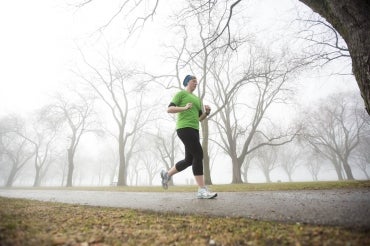GTActivity measures diversity of physical activity in the GTA

Published: September 9, 2016
The Greater Toronto Area is widely recognized as one of the most multicultural communities in the world, but what does that mean for physical activity in the GTA? How many different sports, martial arts, forms of dance, exercise systems, and other physical games and activities do people participate in? Which ones thrive and which ones don't – and why?
That’s what GTActivity.ca aims to find out and they’re asking citizens of the GTA for help. Led by the Centre for Sport Policy Studies at the University of Toronto, GTActivity.ca is a citizen science project that will collect, catalogue and celebrate the diversity of physical activity in the GTA and serve as a public resource for GTA’s diverse communities.
“We continually hear that people should be more active, but we tend to think of sport and physical activity in quite limited ways – going to the gym, running, playing the major team sports,” says project lead professor Peter Donnelly of the Faculty of Kinesiology and Physical Education. “However, in addition to the physical activities practiced by First Nations peoples, every settler community that has come to Canada has brought its own forms of physical culture.”
Because of the limited way of thinking about sport and physical activity, and the limited measurements of activity, the researchers suspect that the amount and variety of physical activities in which people participate may have been underestimated. This project is the first attempt to document that diversity of physical culture in a community as large and diverse as the GTA.
“We are interested in all forms of physical cultural activities, ranging from dances that are only performed on specific formal occasions (such as at a wedding), to daily exercises – running, yoga, tai chi, pilates, etc. – to regularly scheduled sports leagues,” says Donnelly, who also serves as Director of the Centre for Sport Policy Studies at U of T.
For each activity, there will be a written description, a brief history and geography of the activity, and some photographic and video images of people participating in the activity in the GTA.
The citizens of the GTA who participate, occasionally or regularly, in different physical cultural activities, or who know about such activities, are requested to post information about the activity on the site. They may be contacted by the researchers for their help in addressing the other objectives of the study, such as the life cycle of physical activities – which ones come to Canada, which ones thrive and which ones die out?
“We recognize that multiculturalism involves religious and linguistic diversity, and exposes us to cuisines and musical traditions from many different countries and regions,” says Donnelly. “But we have not focused as often on the grassroots forms of culture in which people participate, and what those might tell about the processes of migration and the experiences of living in a multicultural community.
“We are interested in the ways that physical cultural activities may be involved in the integration and inclusion of new Canadians; and we are interested in the political and financial support of physical cultural activities,” says Donnelly.
This project is funded by the Sport Canada Research Initiative through the Social Sciences and Humanities Research Council (SSHRC), and supported by the Faculty of Kinesiology and Physical Education at the University of Toronto.
Donnelly is the head of the project and Dr. Mark Norman the project director. Co-researchers include Professor Bruce Kidd, Principal of the University of Toronto, Scarborough and Vice President of the University of Toronto, and professors Yuka Nakamura and Parissa Safai from the School of Kinesiology and Health Science at York University.
The three collaborating researchers are Daniel Burdsey, deputy head of school (research) in the School of Sport and Service Management at the University of Brighton, UK; Tracy Taylor, deputy dean of the business school at the University of Technology, Sydney, Autralia; and Maarten van Bottenburg, head of department at the Utrecht University School of Governance, Netherlands.



